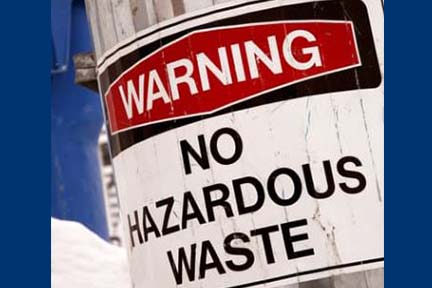Governor Whitmer Announces $32 Million Investment to Fight Crime by Funding Police Officer Retention and Recruitment
Second pillar of $75 million MI Safe Communities framework would fund retention and recruitment programs for officers, expand professional development, training, and mental health, and improve violent crime clearance rates
LANSING, Mich. — Today, Governor Gretchen proposed a $32 million investment to ensure law enforcement officers have the training and resources they need to effectively fight crime. The proposal is part of the larger $75 million MI Safe Communities framework the governor laid out in July, which would utilize federal funding from the American Rescue Plan to reduce crime and keep families safe by tackling the court backlog, expanding resources available to law enforcement, and uplifting communities by making investments in jobs programs, counseling, and education.
“We have to work together to fund police and reduce crime because every Michigander in every community deserves to live safely,” said Governor Whitmer. “As a former prosecutor, keeping families safe is a top priority, and the MI Safe Communities framework will help law enforcement officers do their jobs more effectively. I will work with anyone to bring down crime and help Michiganders feel safe in their community. Together, we can build a safer, more just Michigan where every family can thrive, where every kid can get a great education, and where every person has a path to a good-paying, high-skill job.”
“The member agencies of the Michigan Association of Chiefs of Police are truly appreciative of the concrete actions the Governor is taking to address the critical issues that our law enforcement officers and departments are currently facing,” said Robert Stevenson, Executive Director of the Michigan Association of Chiefs of Police.
“This represents the first of many necessary steps designed to give communities and law enforcement the resources they need to provide Michiganders the safety they deserve,” said Rob Figurski, President of the Michigan Association of Police Organizations.
“Any money spent on making the public safer is money well-spent,” said Matt Saxton, Executive Director of the Michigan Sheriffs’ Association, “And we look forward to learning more about these grants for law enforcement services, recruitment, and retention.”
“Governor Whitmer is right to support additional funding for frontline law enforcement officers, especially for retention and recruitment,” said Kenneth E Grabowski, Legislative Director of Police Officers Association of Michigan (POAM). “Now more than ever, we need to keep our experienced officers and grow our police ranks with new quality officers. Law enforcement is more challenging than ever, a very complicated profession that needs investment. We look forward to working with anyone who is willing to support Michigan law enforcement as our members work to keep families safe every day. POAM appreciates Governor Whitmer understanding this.”
The $32 million investment will go to communities with the highest increases in violent crime. It has four pieces:
1. Retention and Recruitment ($20 million)
Grants up to $10,000 per officer to help local law enforcement departments and correctional facilities retain qualified, experienced personnel, and grants up to $10,000 to recruit or retain future officers enrolled in police academy training programs or new officers who have completed at least 2 years at a department. No department will be eligible for more than 10% of the total funds for a single department receiving funding.
2. Professional Development and Training ($4.5 million)
Funds professional development and enhanced training for current law enforcement and correctional officers and forgive educational debt of recent hires with a matching grant of $5,000, totaling up to $10,000 per eligible officer. No department will be eligible for more than 10% of the total funds for a single department receiving funding.
3. Mental Health ($4.5 million)
Creates a grant program offering behavioral health services for law enforcement officers, firefighters, emergency medical services personnel, dispatchers, and local corrections officers. No department will be eligible for more than 10% of the total funds for a single department receiving funding.
This investment will build on ongoing efforts from the Michigan Department of Health and Human Services to set up an officer mental wellness initiative.
4. Solving Violent Crime ($3 million)
Provides grants to local law enforcement departments to hire homicide detectives or other line staff focused on investigating and solving violent crime. This investment would drive down homicide clearance rates in Michigan cities, which are currently some of the worst nationwide. No department will be eligible for more than 10% of the total funds for a single department receiving funding.
The $32 million investment Governor Whitmer laid out today to ensure law enforcement and corrections departments are equipped to do their jobs was the result of hundreds of conversations the governor and her team had with law enforcement officers, community leaders, faith leaders, and families over several months. Based on those conversations, the governor announced the three-pillar, $75 million MI Safe Communities framework in July.
MI Safe Communities would:
- Invest more money into Michigan’s police departments to strengthen training policies and programs and foster collaboration between the Michigan State Police and local departments on specialty services.
- Increase the number of visiting judges with funding for prosecution and defense to tackle the backlog of criminal cases that has piled up during the pandemic, to protect the rights of defendants to appear in person and help the justice system operate more efficiently while maintaining public safety.
- Make comprehensive investments to expand opportunity through Michigan’s education, jobs, and justice system including Collaborative Community Violence Intervention Programs, counseling, peer support, mediation, and social services to hospital patients recovering from violent injuries and prevent further violence and injuries.
Governor Whitmer will make additional announcements on MI Safe Communities in the coming weeks.
Since taking office, the governor has signed budget bills delivering $1.4 billion to local governments to help them fund local police, fire departments, and emergency medical services. She has also delivered $40 million in COVID hazard pay for local officers and first-responders and over $10 million premium pay for MSP troopers. These dollars help ensure police are better equipped to fight crime today and have the resources to fight crime tomorrow.
Last month, the governor signed the Fiscal Year 2022 budget bill that delivers more resources to state police to help them hire more troopers and expand and improve training. The latest budget also invests in 911 system upgrades and delivers on the kitchen-table fundamental issues that make our communities stronger: putting 167,000 Michiganders on a tuition-free path to higher-education or skills training, expanding low or no-cost childcare to 105,000 kids, repairing or replacing 100 bridges while creating 2,500 jobs, and more.
Earlier this year, Governor Whitmer and legislature worked together to put Michigan students first and passed the largest significant education investment in state history, closing the funding gap between schools in Michigan and including a historic amount of resources for schools to hire more nurses, counselors, and social workers. Early investments in mental and social health help reduce crime in the long run.








